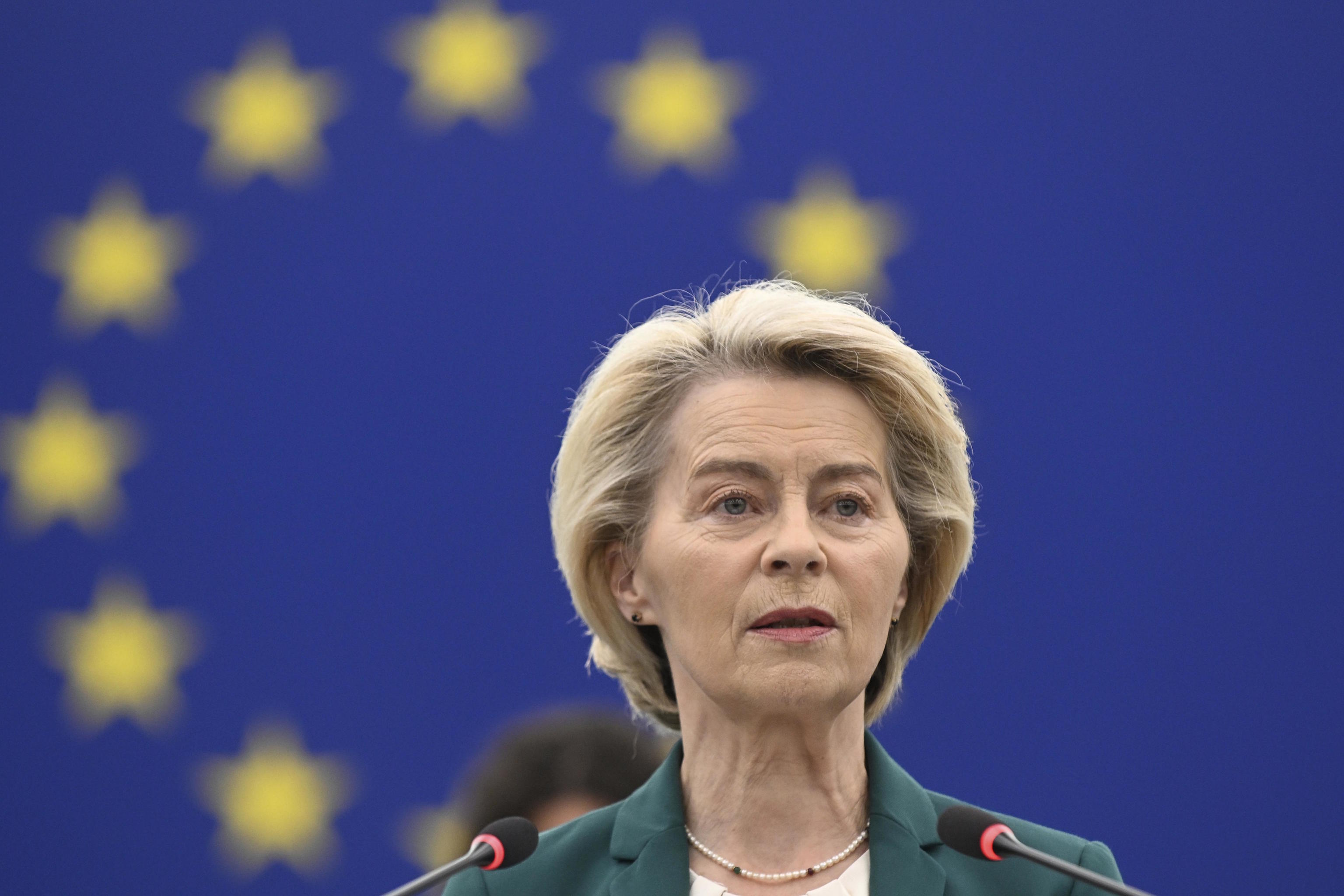Ursula von der Leyen has prepared the European Parliament "for all possible scenarios" in the trade war with the United States. However, at the same time, Brussels is confident of reaching a preliminary agreement before August 1, which is the new deadline set by Donald Trump. Today was also a deadline, July 9, but the new deadline, in any case, gives the EU three more weeks of leeway.
"We are working closely with the U.S. administration to reach an agreement, and I had a good exchange with President Trump this week to move forward," the president of the European Commission recounted in her speech in the plenary debate of the European Parliament, referring to the conversation the two leaders had last Sunday.
And the "message is clear: we maintain our principles, defend our interests, we continue to work in good faith, and we prepare for all scenarios. Of course, we will keep this Chamber fully informed."
Von der Leyen has also reiterated that "the world is looking for reliable partners and Europe is that partner". "Since the beginning of our new mandate, we have already concluded new agreements with Mercosur, Mexico, and Switzerland. We will work to finalize the agreement with India before the end of the year," she continued. She avoided mentioning China, a country with which the EU will hold a summit at the end of this month in a tense atmosphere but also with Trump as a common trade threat.
The German high official also spoke, of course, about the war in Ukraine, Russia, and Europe's need to decisively advance in its rearmament. "Just a week ago, Russia launched its largest and deadliest series of attacks against Ukraine since the start of the war: more than 500 missiles and drones in a few hours. The war continues. The Russian threat persists," Von der Leyen pointed out.
"This is the reality we must always keep in mind when we talk about defense. We cannot depend on others to protect Europe. Defending Europe is our responsibility," she continued, referring to the fact that the United States will now take responsibility for European defense. Or, at least, not as it had done until now.
The president of the European Commission recalled at this point the two tools made available to the countries. "We have facilitated investment of up to 800 billion euros by 2030. It is now possible to increase European defense spending as needed. 16 Member States have requested activating the national escape clause. This allows for a substantial increase in defense spending without triggering the excessive deficit procedure. In addition, the SAFE instrument, with 150 billion euros in loans for joint purchases, has been added. 10 Member States have already expressed their intention to participate." Spain has not requested either of the two tools.
She also added that two weeks ago, the defense omnibus package was presented, which will "accelerate permits and simplify rules on state aid." "It must now be approved by the Parliament and the Council. Time is of the essence, and the longer we wait, the more European investment will go abroad," she concluded.
